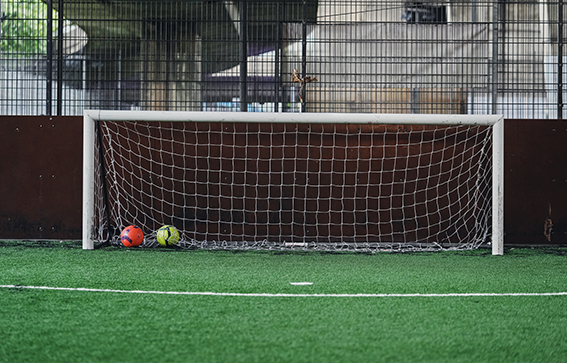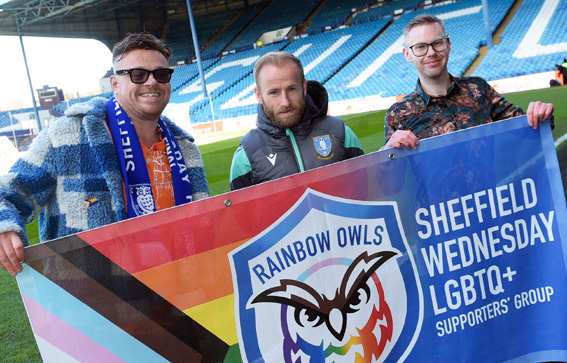On a packed train home from a match, a woman football fan is singled out and harassed by strangers, simply for how she looks.
In grassroots games, young girls are being asked invasive questions about their gender identity before they've even kicked a ball. In stadiums, fans are being heckled with chants like “ladyboy lovers.”
This is the reality in football today, and it’s getting worse.
On May 17th, we mark the International Day Against Homophobia, Biphobia and Transphobia (IDAHOBIT), which commemorates the 1990 decision by the World Health Organisation to declassify homosexuality as a mental disorder.
It’s a reminder of how far we’ve come, and how far we still have to go.
At Kick It Out, we’ve seen reports of transphobic abuse double so far this season. It’s a deeply troubling trend that shows how emboldened some feel to harass, target and exclude others based solely on how they look or identify.
Right now, trans lives are debated everywhere; in the media, hospitals, courtrooms, and stadiums, with a frequency that vastly outweighs the size of the community itself. The noise is deafening. And it risks silencing the people most affected.
These aren’t abstract debates. This is about real people whose lives, identities, and access to healthcare and public spaces are being relentlessly scrutinised. It’s about rising hate crimes. It’s about deteriorating mental health, growing isolation, and doors being closed to those who already face barriers. And it’s about a toxic culture where abuse, online and in person, is increasingly tolerated or ignored.
At Kick It Out, we fight against all forms of discrimination in sport, working to ensure football is a space where everyone is welcome. But lately, conversations about inclusion have been overshadowed by polarising debates, the kind where no one comes out a winner, least of all those on the receiving end of abuse.
The decision by The Football Association, which it says is based on legal advice, to ban trans women from playing women’s football in England is a huge blow to the trans community. At grassroots level, football is often about the social side of the game as much as playing. Getting outside, playing with your friends, enjoying the game and feeling that you belong.
Since the FA’s ban, there are many grassroots teams who have stood up to highlight how trans women - their teammates and friends – should not be denied these fundamental rights and joys.
Teams like Goal Diggers FC have taken action, raising funds, delivering a petition, and standing in solidarity. And they’re not alone. Former and current players across the women’s game have also spoken out, showing support for the trans community and calling for a game that includes everyone.
But we are seeing a growing trend of people feeling emboldened to harass those who don’t fit their expectations of womanhood. Transphobia creates a culture where shouting slurs, policing people’s bodies, and questioning identities becomes normalised. And that’s what we’ve seen in our data: much of the transphobic abuse reported to Kick It Out this season has targeted cis women and girls.
We are deeply concerned about the impact this has on grassroots football, where young girls are being humiliated and questioned about their gender before they’ve even had a chance to play. The damage this does is lasting and deep.
But let’s be absolutely clear: we should not only start caring when transphobic abuse begins affecting others. We must care because it’s happening, and it’s harming a small, already marginalised community who are being relentlessly targeted.
This isn’t just about football. It’s about a rising tolerance for hate. And when we begin to accept hate in any form, against anyone, we’d be foolish to think it won’t spread.
Transphobia is a hate crime. And if football is serious about being for everyone, it must tackle this head-on, with inclusive policies, proper education, and a culture that refuses to accept abuse in any form.
On IDAHOBIT, we remember what’s been fought for, and we commit to protecting it.
Because football can’t be for everyone if it isn’t for trans people too.


